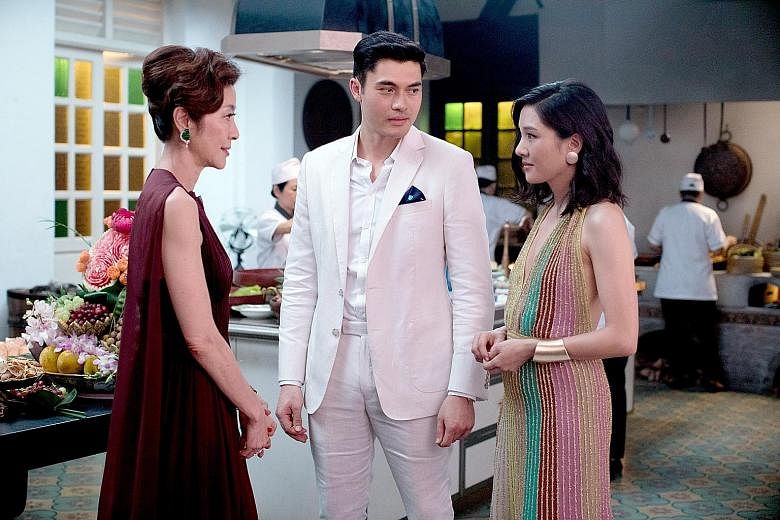WEST HOLLYWOOD (California) • In January last year, director Jon M. Chu announced an open casting call for Asian and Asian-American actors for his movie adaptation of Crazy Rich Asians.
The call was an enticing one. The romantic comedy was going to be a major feature film, with a reported budget of US$30 million (S$41 million). Its inspiration, the best-selling novel by Singapore-born, United States-based Kevin Kwan, had already sold millions of copies.
The last time a major Hollywood film set in the present day showcased a majority Asian cast was 25 years ago, with The Joy Luck Club in 1993. Many of the actors Chu was seeking were not even alive then.
For Asian and Asian-American viewers, the film, which opens in Singapore on Aug 22, is important not just as something of a cinematic Halley's Comet - before The Joy Luck Club, there was Flower Drum Song in 1961.
There is also an eager hope that if this movie succeeds, it might stave off another quarter-century drought.
Producers use something called "comps" - recent films similar to the ones they are pitching - to help sell studios on their ideas and budgets.
For the producers of Crazy Rich Asians, there were none. For scores of Asian-themed films to come, the hope goes, Crazy Rich Asians could be that comp.
As it turns out, there were questions about casting even before the book hit stores. Kwan said a producer who wanted to option the book had suggested that he make one of the main characters, Rachel, white. Kwan refused.
"It didn't surprise me," said Constance Wu, the Chinese-American actress who ultimately secured the role and has been a vocal critic of Hollywood whitewashing.
"I'm just glad that Kevin stuck to his guns. It takes a lot of courage to say no to something, especially if you're scared that everything might slip away if you don't say yes."
Chu admitted the questions about casting disturbed him for a while, particularly the questions about leading man Henry Golding, who was born in Malaysia to a mother from the Iban tribe there and a white British father.
"I realised I was getting angry at the people who felt that they had been burned. They were people like me who had watched Hollywood whitewash things and watched roles go away because someone said an Asian man can't be the lead."
According to Nancy Wang Yuen, author of Reel Inequality: Hollywood Actors And Racism, much of the whitewashing now stems from manga and Marvel films that "draw from these Orientalist tropes, whether it's Asians in the past or Asia in the future".
"But Hollywood doesn't know how to incorporate Asians or Asian-Americans into that. It's like they want our look and stories and martial arts, but they don't want Asians," she said.
With more people talking about diversity in casting and calling out examples of whitewashing, Chu sees positive developments, particularly for Asian-Americans.
"If we make a decent showing on that first weekend, there are like six Asian-American lead movies set up at different studios," he said.
"They're not greenlit. Everyone's waiting to see how this one does. But if this one does well, we'll immediately have more chances. And if it doesn't, we'll just have to do it again."
NYTIMES

